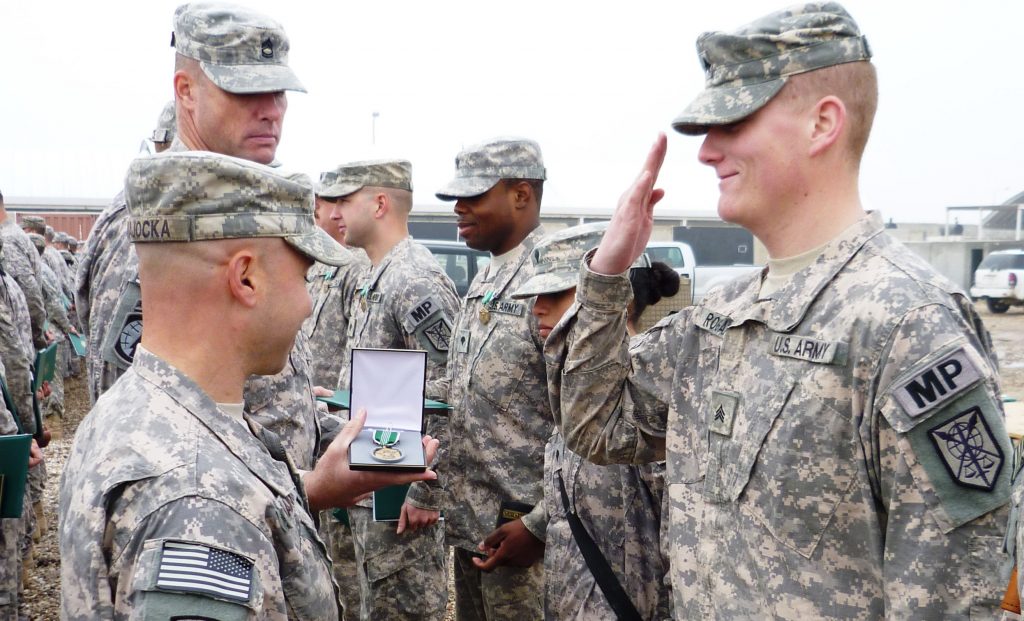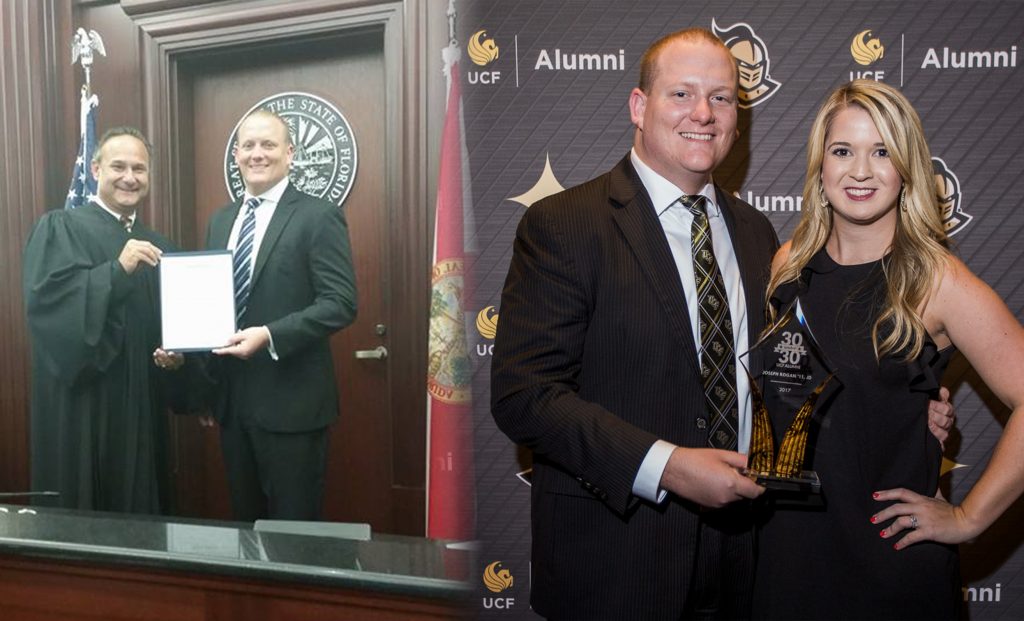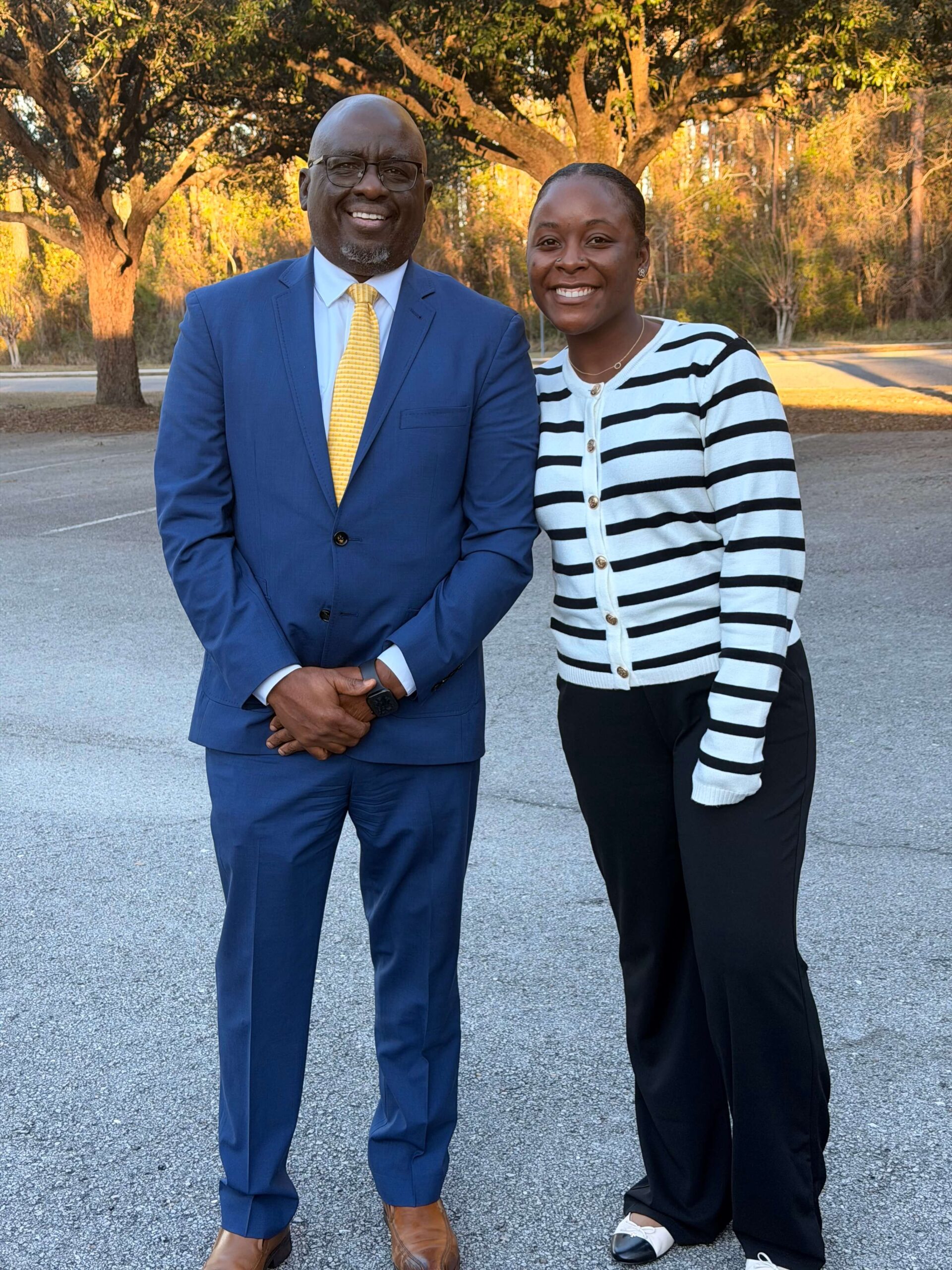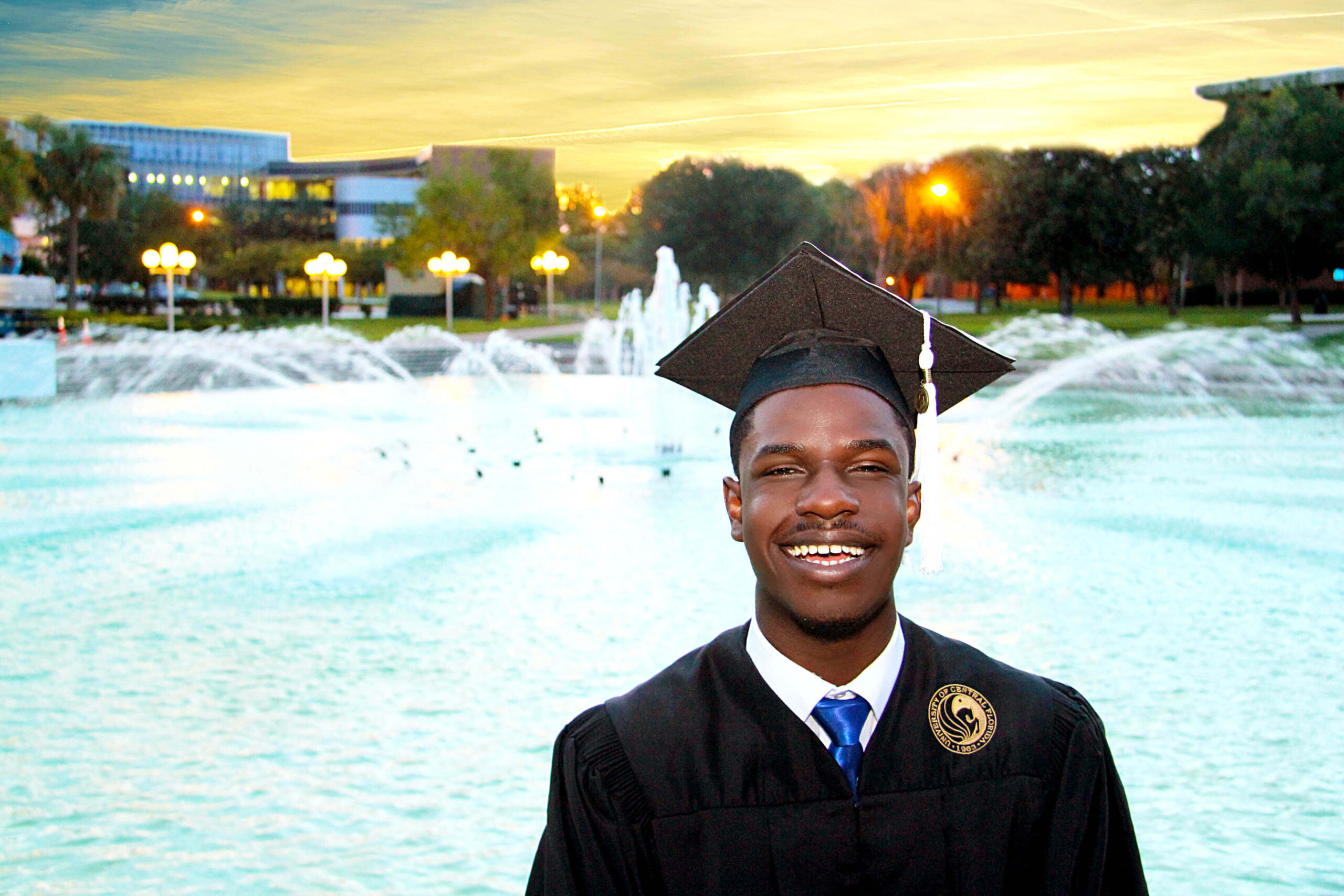Veteran’s Day Salute: Joseph Rogan ’11

Burnett Honors College alumnus Joe Rogan ’11 (right) served eight years in the Military Police Corps of the U.S. Army Reserve.
By Jenna Marina Lee
ORLANDO, Fla. (Nov. 9, 2017) – Jacksonville-based lawyer and UCF alumnus Joseph Rogan ’11 approaches everyday with the same mentality: Put the mission first. Never accept defeat.
Whether those tenets apply to his career or his relationships, the U.S. Army’s Warrior Ethos are something The Burnett Honors College graduate has carried with him since he enlisted in the U.S. Army Reserve at the age of 17.
“It really was just a calling,” said Rogan, who served eight years in the Military Police Corps.
Rogan grew up in South Florida and chose to join the Army Reserve before his senior year of high school.
His parents were supportive but hesitant. In fact, Rogan’s paperwork sat on the table for two weeks without until one day he came home to find the missing component completed: his mother’s signature.
“I found out years later that my brother had persuaded her to sign it,” he said.
In the summer between his junior and senior years of high school, he traveled to Fort Leonard Wood, Missouri, for basic training. He called it a maturing experience and unlike anything he had ever endured.
“I think you learn a lot about values and reasons to trust and work with people,” he said.
He arrived on campus in 2008 after finishing military police school as a first-generation college student and ended up double majoring in political science and psychology. He joined ROTC for that first year and, of course, he was still committed to the Army Reserve, training with his unit regularly.
After his first year at UCF, his unit got activated and was deployed to Iraq.
For 10 months, before he had reached the age of 21, Rogan was responsible for mentoring, advising and training the Iraqi police, some of whom had been officers for decades.
Rogan said the experience helped him find his calling as a lawyer.
“When we were there, the Iraqis were still operating under Saddam Hussein’s penal code. But it was in a democracy. You can imagine there are some really big problems with that,” he said. “Since then, they’ve rewritten the penal code, but at the time, my job was to explain how to treat people in what we view as norms in a democratic society.”
Rogan returned to the United States, and about a week later, he was back in classes at UCF. The transition was understandably a major adjustment.
“It was a difficult time going from holding a gun one day to sitting in class with a pencil the next,” he said.
In addition, he withstood several injuries while overseas, including a traumatic brain injury from a vehicle explosion. Other injuries required surgeries upon his return.
But as he adjusted to studying full-time again, he found ways to apply what he had learned from the military to his everyday life.
His work ethic yielded exemplary grades in his classes. His professors, especially in courses like Middle Eastern politics, saw value in his real-life experiences for class discussions.
Rogan credits Director of Honors Advising Rex Roberts ’00 ’03MA for helping him integrate back into a routine schedule and UCF’s community.
Rogan went on to attend Georgetown Law and spent time working in Washington D.C., where he got involved with UCF Alumni’s chapter and eventually rekindled a friendship that later blossomed into a marriage with alumna Ashley Noland ’10.
“There can be a perception with a university like UCF that because we’re large, it’s not a community. That it’s like a factory. That was never my experience,” he said. “It was very much the opposite.”

His double-life in college and the Army Reserve helped lead him to his career as an associate for Smith Hulsey & Busey focusing in business litigation. His drive hasn’t gone unnoticed as he was selected as one of UCF Alumni’s 30 Under 30 this year.
At its center, that drive is all about putting the mission first and never accepting defeat. So as the United States prepares to commemorate its 63rd annual Veterans Day on Nov. 11, Rogan knows first-hand and respects the depth of duty and commitment of those who serve.
“Everybody who serves, no matter their branch or if they are active or reserve or whether they’ve ever been deployed, everybody who serves has sort of written a blank check to the country,” he said. “It doesn’t mean that they agree with any particular war or that they even want to go, but all those people, by signing on the dotted line, have agreed that they will. And they know that there’s a possibility you could be injured or killed. I have the upmost gratitude for everybody who has signed that line at all stages and all branches.”


